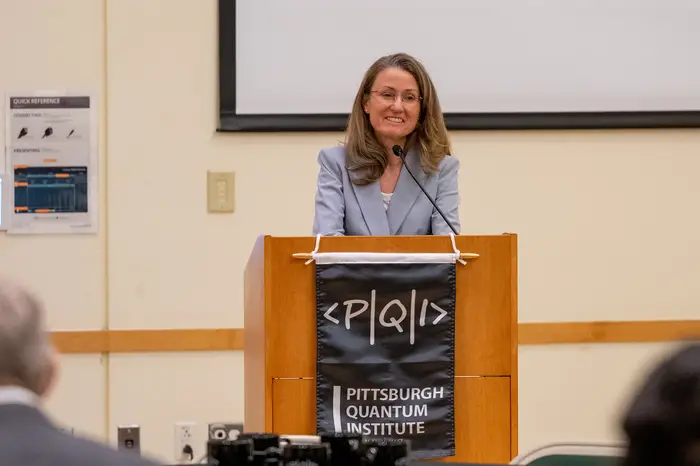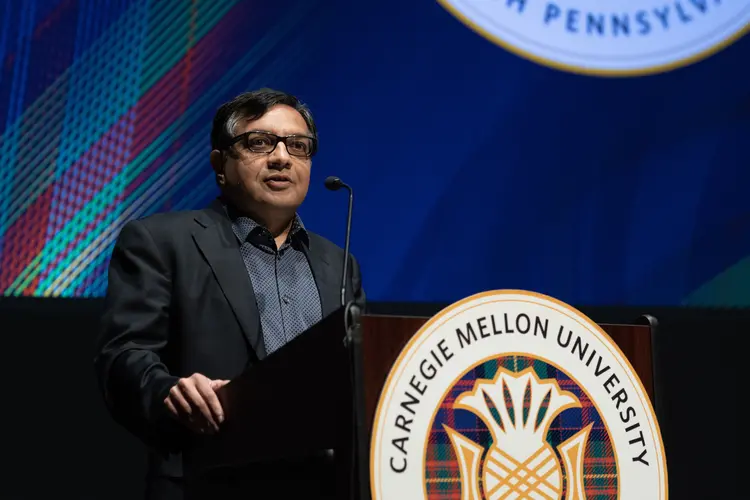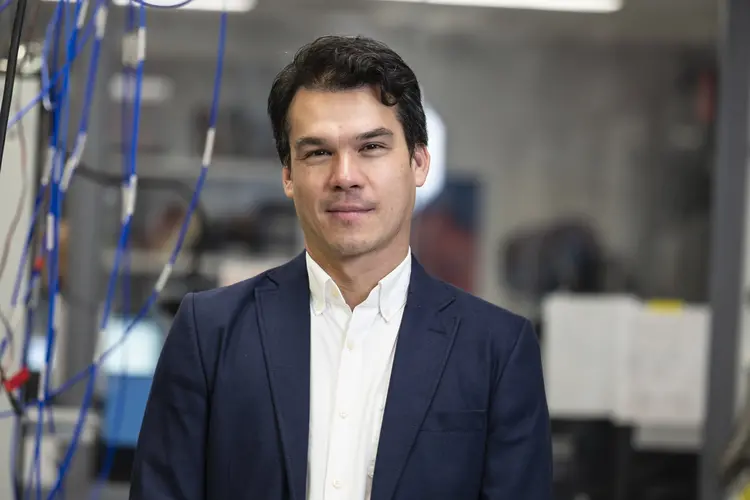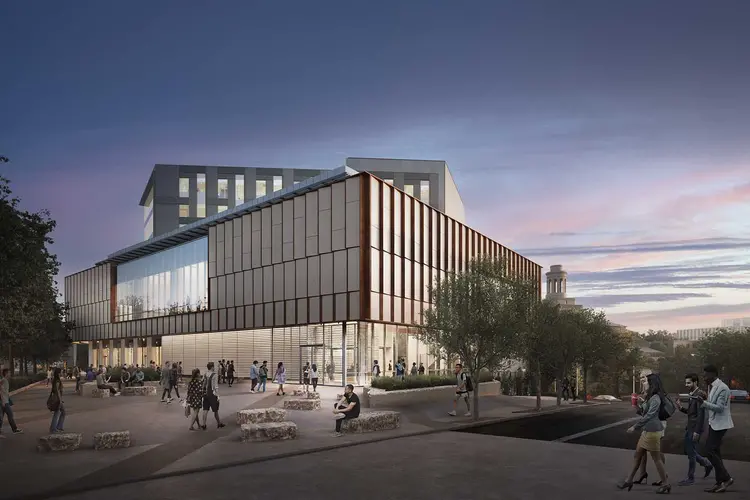Carnegie Mellon Hosts Pittsburgh Quantum Institute Annual Event
Media Inquiries
Quantum technology has the capacity to revolutionize industries, such as computing, finance, health care and materials science. To accomplish that, physicists, engineers and other experts interested in quantum research must collaborate, said Benjamin Hunt(opens in new window), associate professor of physics(opens in new window) at Carnegie Mellon University.
"Connecting researchers is probably the most valuable thing we do," said Hunt, who is co-director of the Pittsburgh Quantum Institute(opens in new window) (PQI), a joint program between Carnegie Mellon, the University of Pittsburgh and Duquesne University. PQI recently held its annual event at Carnegie Mellon's campus for the first time, drawing over 200 registrants from around the United States. "The fact this event happened at CMU is emblematic of the close partnership between Pitt and CMU that has begun to blossom."
Theresa Mayer(opens in new window), vice president for research at Carnegie Mellon, delivered the opening remarks of the April 17 event. She said that organizations like PQI foster research from foundational principles to practical applications.
"It's been a real pleasure for Carnegie Mellon to partner with the University of Pittsburgh and Duquesne University for PQI," Mayer said. "This is such a critical area for our country to lean into in this time. The group of researchers in attendance are going to be instrumental in developing these very important technologies for the country."
The event focused on two primary areas of quantum research: quantum computing and quantum materials.
Quantum computers use qubits to encode information similar to traditional bits used in computers. While traditional bits encode 0 or 1 and work on one task at a time, qubits can encode 0 and 1 at the same time, which allows multiple scenarios to run simultaneously. Quantum materials use some aspect of the wave nature of matter in quantum mechanics to obtain special properties; some of these materials may enable new types of quantum computers.
The keynote address, given by Robert Schoelkopf, professor of applied physics at Yale University, was open to the entire PQI community. Schoelkopf gave an overview of the history of quantum research, and he offered a vision of where the field of quantum computing may go.
"The first quantum processor had 2 qubits. Today, there are machines with 100 qubits," Schoelkopf said. "Quantum computing is a combination of science and engineering, and people are building interesting and potentially useful devices."
Hunt's research is in condensed-matter physics, which allows for the creation of quantum materials. He said that the conference allowed him to further dive into an area he is familiar with while giving him an overview of other aspects of quantum research.
"The morning session was called 'Building the Quantum Stack,' so it's imagining quantum computing from devices all the way up to algorithms. A growing number of faculty at CMU and Pitt are working in this area," Hunt said. "The afternoon session was called 'Materials for Quantum,' which is close to my own research. I was really excited to hear from those speakers."
The conference also offered a panel including three representatives from government agencies including the National Science Foundation, the National Institute of Standards and Technology and the Office of Technology Transitions' Lab Partnering Service. Panelists focused on the government's promotion of quantum research, and they shared opportunities for funding, scholarships and fellowships.
David Snoke(opens in new window), distinguished professor of physics and astronomy at Pitt and incoming co-director of PQI, said that the conference events like this provide ways for local institutions and companies to come together around quantum research.
"The PQI Event brought together researchers from 16 universities and 10 companies," Snoke said. "The work they're doing will help push the field further to enhance our understanding of quantum science and drive a new era of discovery."
The conference finished with a poster session, allowing undergraduate students, graduate students, postdoctoral fellows, professors, and representatives of government and industry labs to share their own progress in quantum materials and quantum computing.



